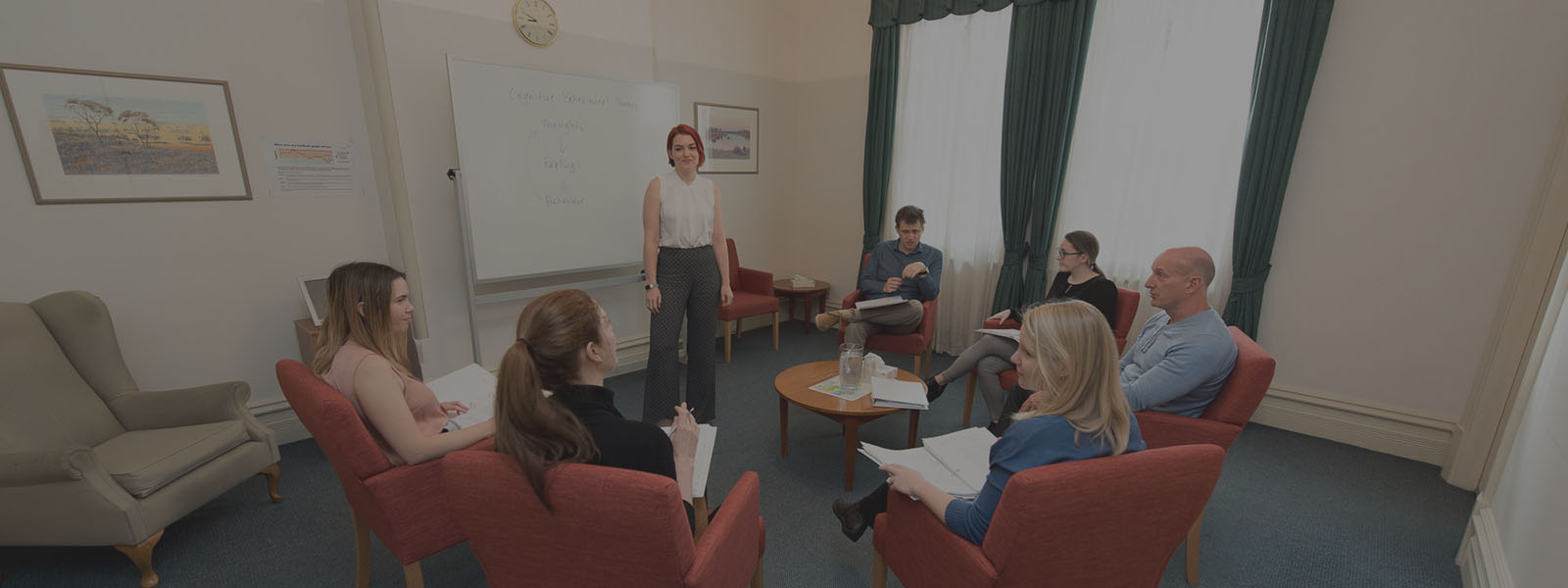program Content
A wide range of material is covered in the program including:
Goal setting/planning
You will be encouraged to set realistic goals for positive life-style change. Time is spent developing, planning and problem-solving in order to assist you to reach your goals.
Managing anxiety and depression
Detailed information on anxiety and depression is provided to increase your understanding and awareness of the nature of these problems. There is also a focus on learning practical skills which can be used to manage and control both emotional and physical symptoms of anxiety and depression.
Communication/assertion skills
An important aim is to enhance your communication skills including listening skills, communication of needs and feelings and assertion skills.
Self-esteem
You will encouraged to assess yourself more objectively and to acknowledge your strengths and positive attributes. Concepts of self worth and values are carefully explored in the group.
Stress Management / Relaxation
Time is spent developing stress management skills with an emphasis on developing healthier lifestyle practices. Group members are taught specific relaxation techniques and are encouraged to practice these outside the group.
Active Practice
It is very important to actively set behavioural tasks that encourage you to try different ways of approaching your difficulties. This is achieved by setting homework assignments.
What does homework mean and do we have to do it?
The CBT program at Perth Clinic is highly effective if you – the participant – are willing to make the commitment to try the strategies we teach you. Homework plays an important role in the recovery process as the major part of therapy takes place in everyday life, where you put into practice the skills learnt in the group sessions.
Participants may also be encouraged to do specific tasks in between sessions.
If you are concerned that you did not enjoy homework at school, and that you are not a great student, do not despair. Our homework is completely different from that and comprises a healthy mixture of self-nurturing tasks and active practice tasks.
All tasks are designed to be a little bit challenging but not too much so that you feel too scared to try. We know that there is nothing to be gained from pushing someone too far too fast. Thus, therapists do not force you to do anything you do not feel confident or capable of doing.
Tasks are developed collaboratively with each participant. That is, you are very much involved in deciding what and how much you do as homework.
We know from experience that if you elect not to do any homework the chance of your improvement through CBT is significantly reduced! You make the choice.
Individual Participants
An important characteristic of the program is that it is flexible and responsive to the needs of each group member.
Other topics may be included depending upon participants’ needs. In addition to increasing coping skills and resources, the program also offers a safe forum for discussing problems and difficulties within a caring and supportive atmosphere. This in itself is perhaps one of the most valuable aspects of participating in the Weekly CBT program.
When does it run?
This program runs for three hours each week, consisting of two 90 minute sessions with a break in between. There are generally programs available either during the day or outside of office hours for your convenience.
Follow-up sessions
Patients are also offered two follow-up sessions at six and twelve weeks after the group has finished. At this time your progress can be monitored and we can review your application of skills and techniques learned in the program.
CBT Booster
CBT Booster is a program that has been designed to provide you with additional support in maintaining your treatment gains by reviewing and refreshing what you learnt throughout your engagement in any of our CBT group programs. It runs monthly as an open group, with six sessions in total. Sessions are held on a weekday evening. It is suitable for any adults who have completed CBT (intensive or weekly) within the past 18 months.
How to get involved
You will need to discuss your interest in any of the groups available as part of the CBT program with your Perth Clinic psychiatrist. Once a referral has been received from your psychiatrist, you will be contacted by Perth Clinic staff to arrange your booking.

